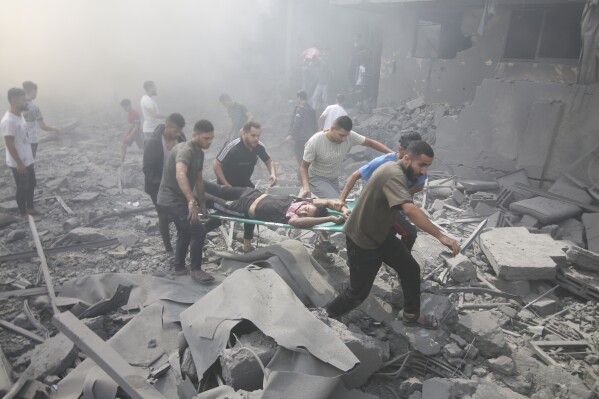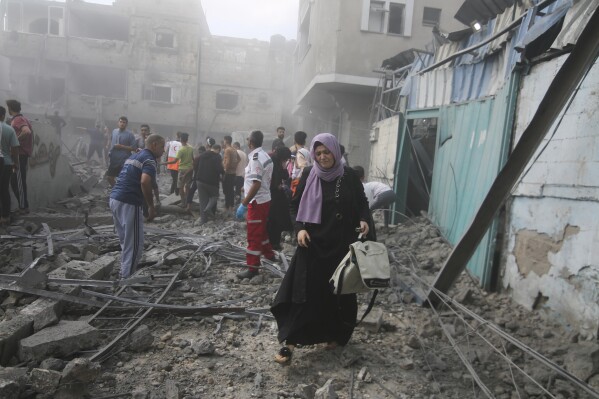Israeli family mourns grandfather killed by Hamas and worries about grandmother, a captive in Gaza
David Moshe was born in Iraq. So decades later in Israel, his wife, Adina, cooked his favorite Iraqi food, including a traditional dish with dough, meat and rice.
But what really delighted the family, their granddaughter Anat recalls, was Adina’s maqluba — a Middle Eastern meal served in a pot that is flipped upside-down at the table, releasing the steaming goodness inside. Pleasing her husband of more than a half-century, Anat Moshe says, was her grandmother’s real culinary priority.
“They were so in love, you don’t know how in love they were,” Anat Moshe, 25, said in a telephone interview Thursday. Adina Moshe “would make him his favorite food, Iraqi food. Our Shabbat table was always so full.”
It will be wracked with heartbreak now.
 Israeli evacuation call in Gaza hikes Egypt’s fears of a mass exodus of refugees into its territory
Israeli evacuation call in Gaza hikes Egypt’s fears of a mass exodus of refugees into its territory
 Stock market today: Wall Street is mixed as hope for stronger profits collides with worry about war
Stock market today: Wall Street is mixed as hope for stronger profits collides with worry about war
 Palestinians flee northern Gaza after Israel orders 1 million to evacuate as ground attack looms
Palestinians flee northern Gaza after Israel orders 1 million to evacuate as ground attack looms
On Saturday, Hamas fighters shot and killed David Moshe, 75, as he and Adina huddled in their bomb shelter in Nir Oz, a kibbutz about two miles from the Gaza border. The militants burned the couple’s house. The next time Anat Moshe saw her grandmother was in a video, in which Adina Moshe, 72, in a red top, was sandwiched between two insurgents on a motorbike, driving away.
Adina Moshe hasn’t been heard from since, Anat Moshe said. She’d had heart surgery last year, and is without her medication. The family is trying to work through various organizations to get the medicine to Adina in captivity.
Anat Moshe brightened when she recalled her family life in Nir Oz. The community was the birthplace and landscape of Adina and David’s romance and family. The two met at the pool, Anat said. Adina worked as a minder of small children, so generations of residents knew her.
But all along, low-level anxiety hummed about the community’s proximity to Gaza.
“There was always like some concern about it, like rumors,” Anat Moshe recalled. “She always told us that when the terrorists come to her house, she will make her coffee and put out some cookies and put out great food.”
___
Follow AP journalist Laurie Kellman at http://twitter.com/APLaurieKellman
Disclaimer: The copyright of this article belongs to the original author. Reposting this article is solely for the purpose of information dissemination and does not constitute any investment advice. If there is any infringement, please contact us immediately. We will make corrections or deletions as necessary. Thank you.




